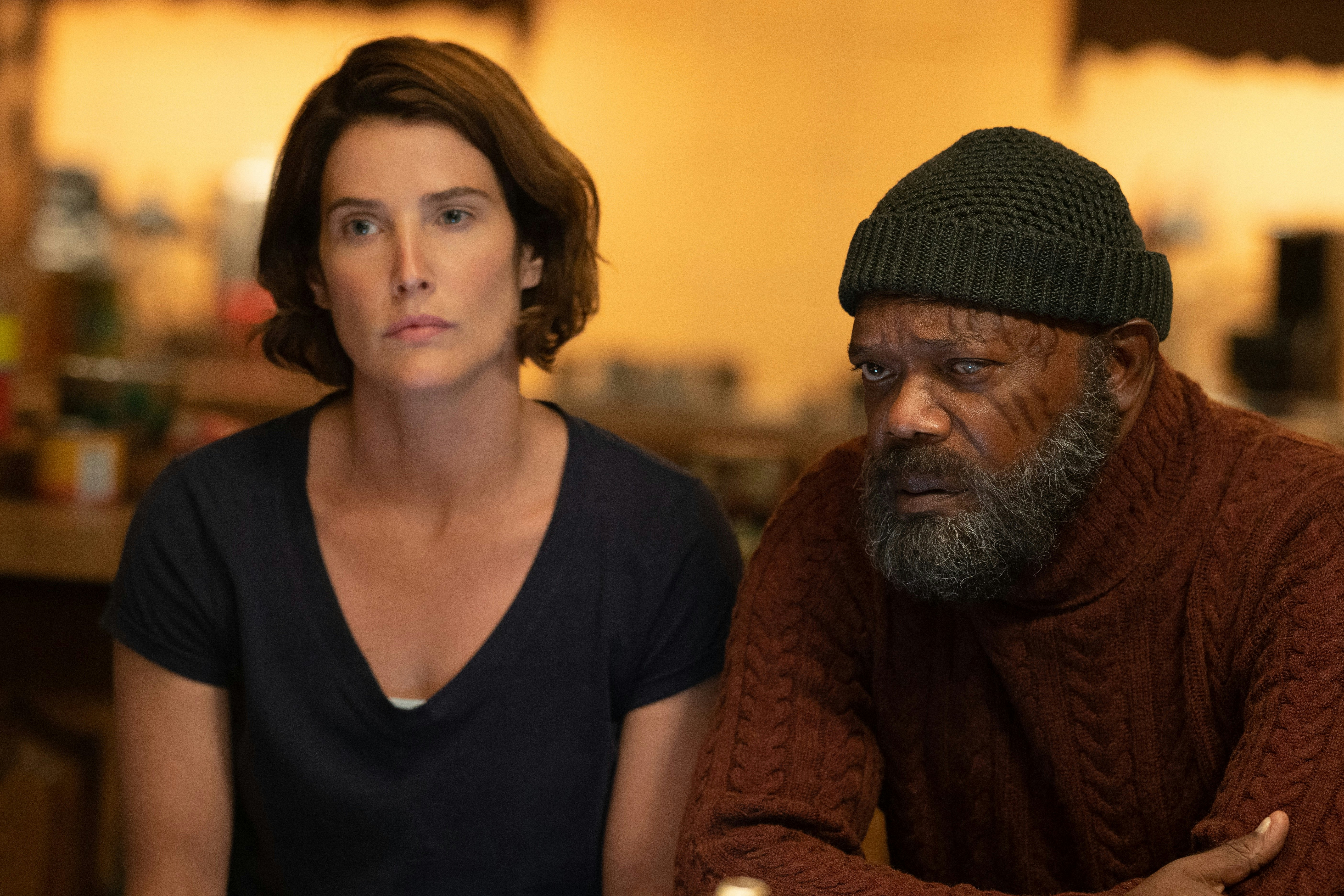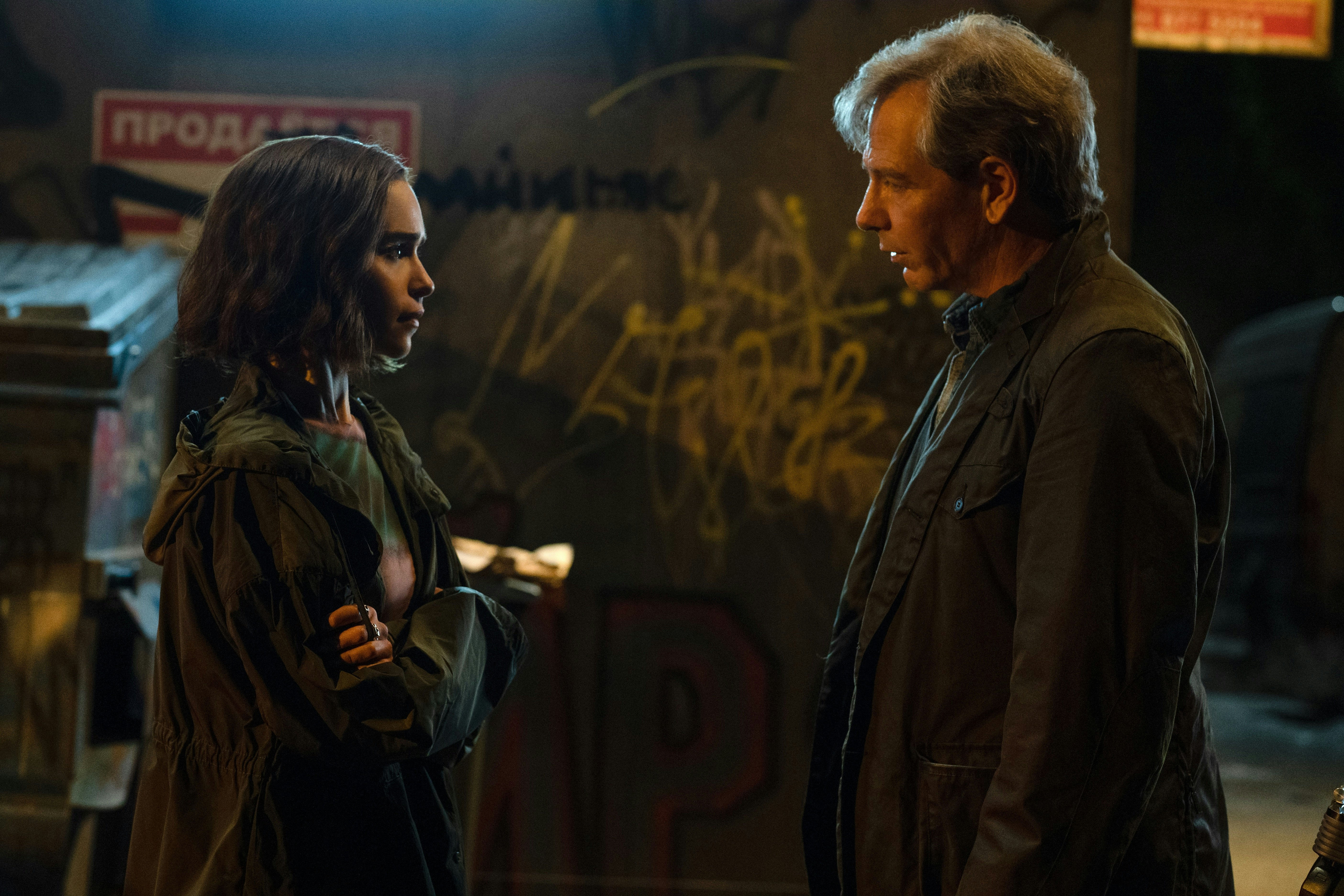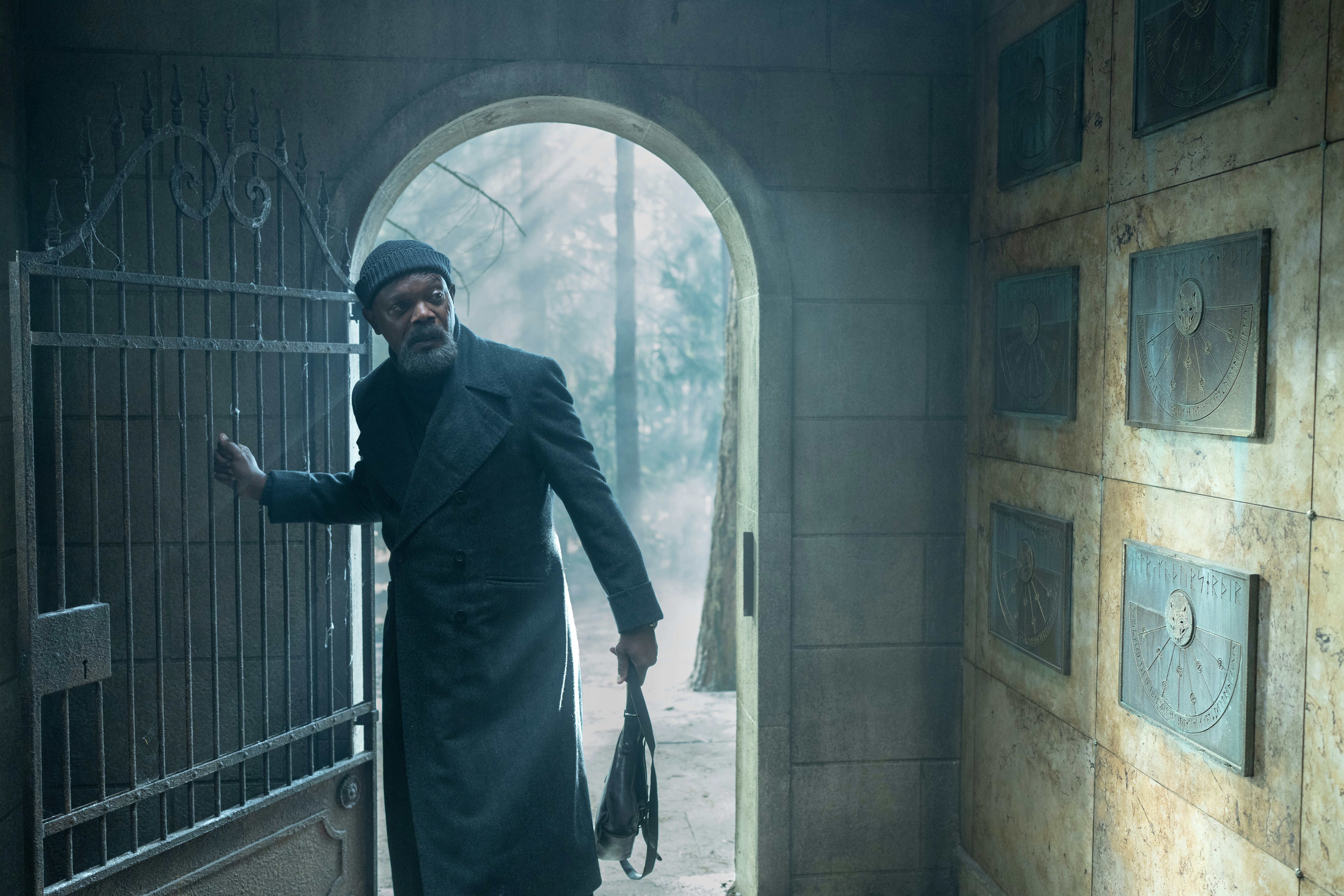
Nick Fury (Samuel L. Jackson) has always been a mystery, and for good reason: he’s the ultimate spy. He’s not necessarily the guy that’s going to blend in, and as a Black man that grew up on a cocktail of blaxploitation and conspiracy in the Jim Crow South, you can’t really expect him to.
Fury’s superpower is that he doesn’t shape-shift so much as he code-switches, and he doesn’t lie so much as he withholds. He’s not shy about sharing personal anecdotes — the story he tells about his grandfather in Captain America: The Winter Soldier remains one of the highlights of the film — but it’s always for good reason. No matter how much he’s shared across the past decade and change, we still know very little about what makes Fury tick. Fortunately, Secret Invasion wants to change that.
Marvel’s latest series serves as Fury’s first ever solo outing; fittingly, it’s just as twisty as he is. Marvel has dipped into politics and espionage, to varied success, throughout its 15-year history. But not since The Winter Soldier has the MCU juggled conspiracy, pulp, and paranoia so effectively. Secret Invasion is a surprising departure from the punch-pulling efforts of Marvel’s Phase 4, and the closest the franchise has come to “prestige” in a long time. It’s not quite the MCU’s Andor — it stumbles a bit in the beginning, possibly because it’s working so hard to reestablish Captain Marvel’s conflict. But once things click into place, it becomes a satisfying slow burn with a lot to say about our world.

Secret Invasion kicks off some years after Avengers: Endgame. Since Thanos was thwarted for good, Fury’s been hard at work building S.A.B.E.R., which for all intents and purposes is basically S.H.I.E.L.D. in space. There’s a sense that Fury is hiding, burying his head in the sand rather than tending to his responsibilities on Earth. It’s been 30 years since he promised Talos (Ben Mendelsohn), the de facto leader of the Skrulls, that he’d help them find a new home after being displaced by the Kree. Fury’s no closer to making good on his promise, and it’s laid the groundwork for a contentious cold war between the humans and the aliens living in their midst.
Talos’ daughter G’iah is now all grown up (portrayed here by Emilia Clarke) — and like the rest of the Skrulls who were raised as refugees, she’s understandably frustrated by Fury’s failure and her father’s reluctance to check him on it. She’s since joined up with a radical rebel leader, Gravik (Kingsley Ben-Adir), who shares a personal history with Fury. It’s Gravik who lures Fury from his fortress in the sky, if only to have an audience for the clandestine coup he’s pulling off behind the scenes.
As Gravik pits global superpowers against each other — and implicates Fury in his scheme — Talos finds himself caught in the middle. His bond with Fury is one of the series’ many high points, partially because it’s the one where Fury comes closest to bearing it all. Talos isn’t pulling any punches either: their rapport shimmers with a playful brotherly love and a loyalty that’s clearly been fostered over decades. But there’s a quiet resentment festering, too; a sense of strained allegiance as their respective worlds fall apart at the seams.

The series benefits greatly from Jackson’s dual role as executive producer. For the first time since The Winter Soldier, Marvel finally seems willing to acknowledge that Fury is, in fact, a Black man moving through an intolerant world. He can’t slip out of his identity like the Skrulls, and perhaps that’s what makes him such a brilliant spymaster — but it’s also something that brings his relationship with these aliens into clearer focus.
Mendelsohn is absolutely brilliant as Talos, doubling down on the pathos that Captain Marvel only briefly teased. His performance is just one of many carrying the series, as Ben-Adir, Clarke, and Olivia Colman (whose Special Agent Sonya Falsworth feels like a gleeful mash-up of her characters from Fleabag and The Crown) are each perfectly dialed into the material. The only performer that feels at all underserved is Cobie Smulders, who’s been drifting on the sidelines as Maria Hill since her introduction in The Avengers. It's a shame that Secret Invasion seems so reluctant to imbue her with any substance, even now, in what is very likely to be Fury’s finest hour.
Don Cheadle also returns in a more antagonistic role as James Rhodes. Through his contentious scenes with Fury, Secret Invasion is able to dig into the meaty issues that Black men in positions of power face — and the different ways they can be addressed. Is there any room for solidarity when you’re in service to the Man? Fury certainly thinks so, but it’s much more complicated for Rhodey, now a liaison to the U.S. President (Dermot Mulroney).

So far, Secret Invasion (of which this reviewer saw two episodes of the show’s six) is succeeding in every area The Falcon and the Winter Soldier dropped the ball. Unpacking politics alongside genre themes is no small feat, but perhaps it’s easier when your heroes already have established identities.
For all the shifting allegiances and schemes at play in the series, Fury remains a fixed point. Secret Invasion is peeling back the layers of a character we’re only just beginning to understand, a character that many may have taken for granted — if only because of Jackson’s unpredictable role in Marvel’s Cinematic Universe. Not unlike his former right-hand woman, Natasha Romanoff (Scarlett Johansson), Fury rarely plays the same role twice. His mercurial nature has always been his secret weapon, but now it’s the only arsenal he has against a world on the brink of extinction. But if Fury’s first solo outing can teach us anything, it’s that this character should never be underestimated.







